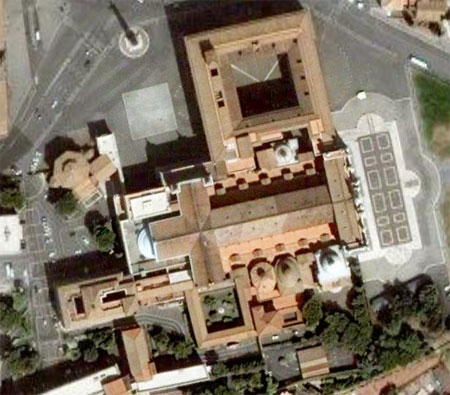“From which I later concluded that if there is one thing as noisy as suffering it is pleasure, especially when there is added to it – failing the fear of having children, which could not be the case here, in spite of the far-from-convincing example in the Golden Legend – an immediate concern with cleanliness.”
(Proust, Sodom and Gomorrah, trans. John Sturrock, p.11)
* * * * *
“Then said he, ‘Make me with child, and after to be delivered, that I may know what pain my mother suffered.’ Which by craft they gave to him a young frog to drink, and grew in his belly, and then he said, ‘But unless ye make me to be delivered I shall slay you all.’ And so they gave him such a drink that he had a vomit and cast out the frog, and bare him on hand that because that he abode not his time it was misshapen, which yet he made to be kept.
Then for his pleasure he set Rome afire, which burned seven days and seven nights, and was in a high tower and enjoyed him to see so great a flame of fire, and sang merrily.
He slew the senators of Rome to see what sorrow and lamentation their wives would make.
He wedded a man for his wife. He fished with nets of gold thread, and the garment that he had worn one day he would never wear it nor see it after.
Then the Romans seeing his woodness, assailed him and pursued him unto without the city, and when he saw he might not escape them, he took a stake and sharped it with his teeth, and therewith stuck himself through the body and so slew himself. In another place it is read that he was devoured of wolves. Then the Romans returned and found the frog, and threw it out of the city and there burnt it.”
(The Golden Legend, the life of Saint Peter)
* * * * *
“Many writers allude to it in Naaman’s case; that Constantine the head of the whole earth had leprosy no one mentioned; at least none of his fellow citizens, but perhaps some foreigner or other, to be given no more credence than that other fellow who wrote about wasps building their nest in Vespasian’s nostrils, and about the frog taken from Nero at birth, whence they say the place was called the Lateran, for the frog (rana) is concealed (latere) there in its grave. Such stuff neither the wasps themselves, nor frogs, if they could speak, would have uttered! [I pass over the statement that boys’ blood is a remedy for leprosy, which medical science does not admit;] unless they attribute this to the Capitoline gods, as though they were wont to talk and had ordered this to be done!”
Lorenzo Valla, Discourse on the Forgery of the Alleged Donation of Constantine, trans. Christopher B. Coleman, pp.153–155)
<
p align=”center”> *

(G. B. Falda, Pianta di Roma (detail), 1676)
* * * * *

(Google Earth of the same)

